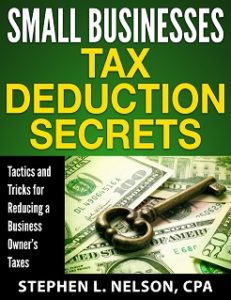
We experimented with a freemium through the first few months of the year, giving away free copies of some of our do-it-yourself incorporation kits.
Last week, we stopped that—partly because we want to update and expand the kits. But mostly because like many small business giveaways or deep discounts, the give-away returned disappointing results.
The whole experience, in fact, reminded me again that small businesses really want to be careful when trying discounting and freemium-type tactics because they often fail for such predictable reasons.
Given our own recent experience, I thought I’d identify the three big problems with discounting—at least from the small business owner’s perspective.
Problem #1: Usually Conflicts with Your Strategy
A first big problem? Well, probably a discounting tactic, including something like a free giveaway, conflicts with your small business’s strategy.
Oh sure, competing on the basis of price works for big companies with lots of ability to scale. And lots of people will love you for your free stuff.
But that’s probably not the way you compete, right? You’ve probably tailored your operation to meet the rather specific needs of a particular group of customers or clients.
Or maybe you’ve creating a highly differentiated product or service—something really special—and that special-ness you use to compete.
In cases where you or I compete on the basis of expertise or experience dealing with certain customers or on the basis of the special-ness of a product or service, we mix up our strategy and our tactics if we then start discounting massively or giving away products or services for free.
Wal-Mart and Costco? Low prices are their strategy. So of course they discount. But their operations and massive resources allow them to scale up massively.
Things simply work differently for us.
Problem #2: Requires Absurd Bump in Revenue
Another problem with discounting strategies concerns the bump in volume you need to make the gambit breakeven. And note that I’m not talking about making money; I’m talking about simply breaking even.
But let me provide a hypothetical example. Suppose your business sells one million $1 gizmos. So that equals $1,000,000 in revenue.
Further assume that each item costs you $.40 and that your operating expenses run another $400,000.
In this case, your business makes around $200,000, as shown below:
| Revenues (1,000,000 at $1 each): | $1,000,000 |
| Less: Cost of goods sold (1,000,000 at $.40 each) | $400,000 |
| Gross profit margin: | $600,000 |
| Operating expenses: | $400,000 |
| Net income | $200,000 |
Suppose, then, that you want to consider a big discount. Something that shocks and awes your customers or clients or your competitors.
Say, for example, you cut your prices by 30%. Rather than sell gizmos for $1, you want to try selling them for $.70.
Here’s the weird thing about this 30% decrease in price. If you work the math out, you need to double your volume. In other words, you need to sell not one million gizmos, you need to sell two million gizmos.
Selling twice as many gizmos will let you breakeven on your discounting tactic, as shown in the table that follows:
| Revenues (2,000,000 at $.70 each): | $1,400,000 |
| Less: Cost of goods sold (2,000,000 at $.40 each) | $800,000 |
| Gross profit margin: | $600,000 |
| Operating expenses: | $400,000 |
| Net income | $200,000 |
That’s brutal right? To “pay” for a 30% discount you need a 100% bump in volume.
And even if you can get the bump in volume, you have to ask yourself whether the gambit makes sense. Do you even have the working capital and the operational capacity to double your unit sales? Yikes.
Problem #3: Often Sends Wrong Signal About Product and Service Quality
One more, very quick point about discounting tactics, including things like giving away freemiums.
Sometimes, and I see this regularly with digital goods and digital services, tactics like discounting and freemiums send a predictable signal to potential customers and clients.
Free or nearly free signals people that your other stuff (or my other stuff) is low quality.
In this scenario, then, we may find that not only do we not achieve the bump in unit sales required to pay for the discounting, but we also find ourselves seeing unit volume decrease.
This, by the way, is what we saw when we gave away some do-it-yourself kits. We damaged sales of our quite popular, niche-y e-books about small business tax planning.
Curious about the other ebooks we publish?

Here’s something that I’ve noticed again and again about small businesses. They usually don’t do a very good job about maximizing their tax deductions.
More specifically, small business owners usually don’t go to the effort of structuring their business activities to protect legitimate deductions, to create new deductions and to recycle (or double-deduct) the deductions which can be used more than once to save taxes.
Which neatly brings me to my e-book, Small Businesses Tax Deduction Secrets. This 70pp e-book, which costs $40, addresses this information short-fall by talking about how you can annually save thousands or even tens of thousands of dollars in taxes simply by more effectively using legitimate business deductions.
Click for more info or to purchase and download
And a quick note: If you’re a client of our CPA firm, you don’t need to purchase this ebook. We will happily provide you with free copies of any of our books, including this one. Just ask for a copy next time you talk to us.